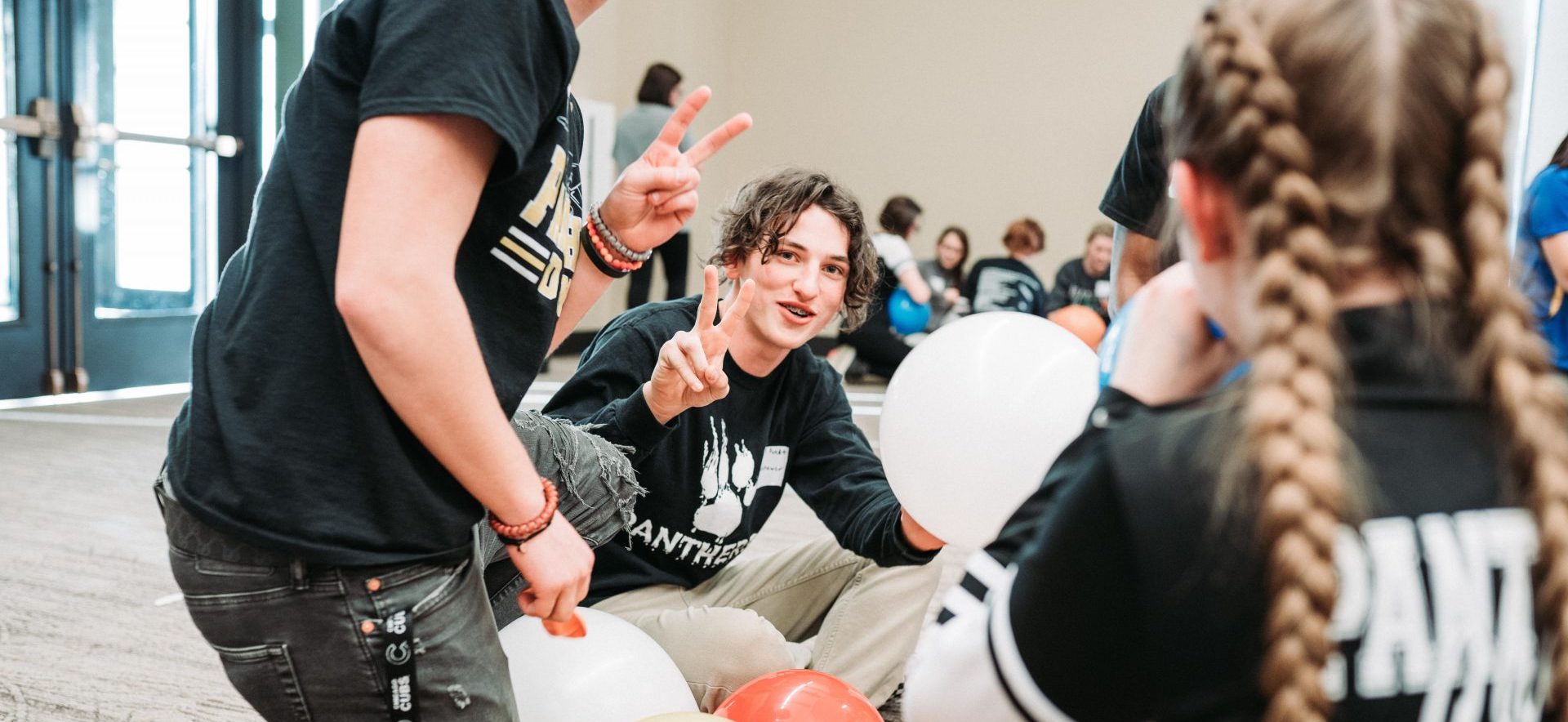Students don’t have to wait until they graduate from high school to take classes at Richland. Dual credit allows students to supplement their high school courses with college-level classes for both high school and college credit. College credit allows students to take college-level classes for college credit and bank those credits while in high school for later use at Richland or to transfer to a college or university.
What is dual credit?
Dual credit is an option available for high school students who rank above average in academic achievement, to take a Richland college-level class. Dual credit students take a college level class, and receive college credit and high school credit at the same time. The classes may be offered at any of these sites:
- Their high school
- Richland’s main campus
- Heartland Technical Academy
- Clinton Higher Education Center
Why take dual credit courses?
- Explore options – Some students need time to find what they want to pursue. Many students discover Richland to be a great place to take classes, be exposed to many career options, and then transfer on or enter a career and technical education program at Richland Community College.
- Transferability – Students transferring from Richland do as well or better than those who begin at a four-year college.
- Save money – Classes at Richland are a fraction of the cost of most four-year colleges and universities. Students get a head start on college and save money.
- Save time – A student in a dual credit college course also applies the credit directly to high school graduation at the same time.
Eligibility
High school students, generally juniors and seniors, who meet all college course pre-requisites, are eligible for dual credit enrollment, pending approval of their high school principal or guidance counselor and their parent/guardian. Students in these college courses must have appropriate academic qualifications, a high level of motivation, and adequate time to devote to studying a college-level course.
Admission Process
High school students must:
- Complete the Admission Information form online
- Submit official high school transcript
- Submit official ACT scores (if available)
- Submit Principal’s Approval form

- Submit Parent/Guardian Approval form

Assessment Test and Procedures
High school must take the following:
- English assessment test (or have an ACT score of at least 19 in both English and Reading)
- Math assessment test (if required for prerequisite)
- Meet course prerequisites, when applicable
Scholarships
Dual credit and dual enrollment students may apply for scholarships if they are responsible for all or part of the cost of the dual credit or dual enrollment classes. Students applying for a Dual Credit or Dual Enrollment scholarship at Richland will need to complete the General Scholarship Application and the additional Dual Credit/Dual Enrollment application. Using this link to the Scholarship Application, students will need to locate the Sign In button and sign in with their Richland email address and password, and complete the General Application being sure to indicate they are a Dual Credit/Dual Enrollment student in the question about the FAFSA. Once the general application has been submitted, they should be prompted to complete the additional Dual Credit/Dual Enrollment application which includes adding the email address of the student’s high school counselor, or the email address of the adult responsible for their education if homeschooled to serve as a reference. Scholarship offers go out to the student’s Richland Outlook email address and post-acceptance questions are required to be answered before awarding. Students must be registered for classes before they can be considered for scholarships. Please email scholarships@richland.edu with any questions.
Transferring College Courses
Students who plan to attend another college or university (particularly a private or out-of-state school) should check with that school to be sure the college credits earned in this program transfer smoothly.
Uncompleted Courses
Students must check with their high school guidance counselor regarding their high school’s policy on course withdrawal. The time frame to withdraw from classes at your high school may be tremendously different from Richland’s policy. High school students’ transcripts can reflect a final grade of “F” for a course because they did not comply with their high school’s withdrawal policy.
Student’s Required Attendance
High school students are required to abide by the College’s calendar of classes, which may vary from their home school. High schools often make accommodations for their students to take family vacations, attend special school functions/events/camps. Richland Community College does not differentiate between high school students and other students; all students need to make the necessary commitment required of their class.
Registration and Textbooks
High school students may register for classes when Richland Community College’s Director of Admissions & Recruitment is scheduled at their high school or at Richland Community College’s main campus. Tuition is due 2 weeks prior to the beginning of the semester. Textbooks are not included in the tuition amount. Textbooks and any other required materials are the student’s responsibility to purchase prior to the start of class.
College Policies
Students participating in dual credit courses will be evaluated as college students and are expected to follow the rules and regulations of Richland Community College. All students will abide by Richland’s Student Rights and Responsibilities as found in the Student Handbook.
Information Disclosure
Even though you are in high school, you are an Richland Community College student when taking our classes. All Richland students are covered under the Family Educational Rights and Privacy Act (FERPA) that prohibits Richland Community College from disclosing information to anyone, including parents, without the student’s written consent.
